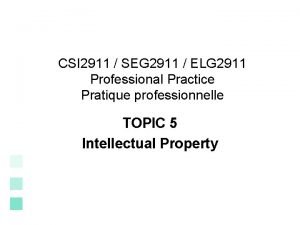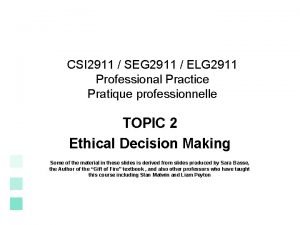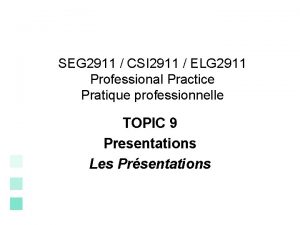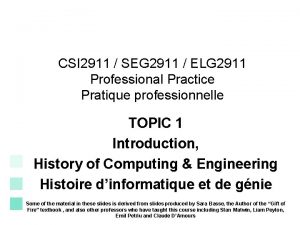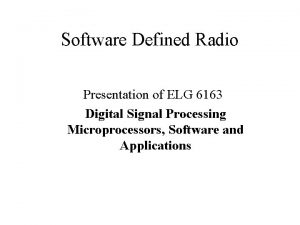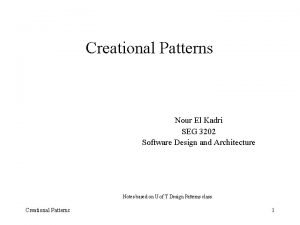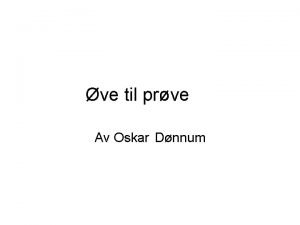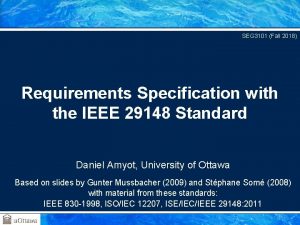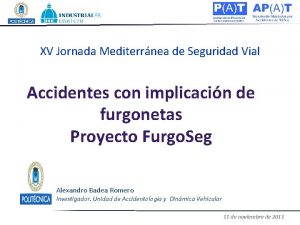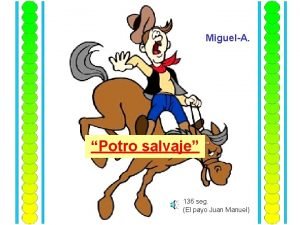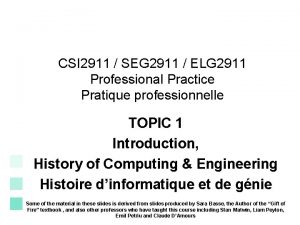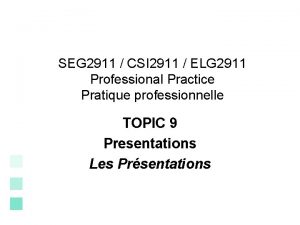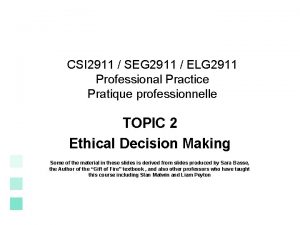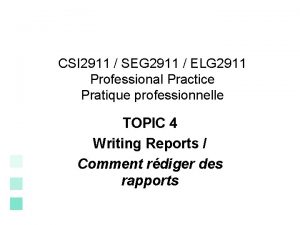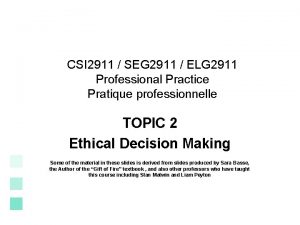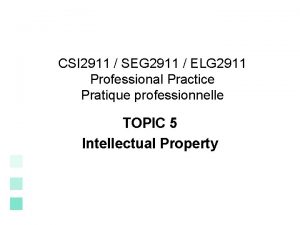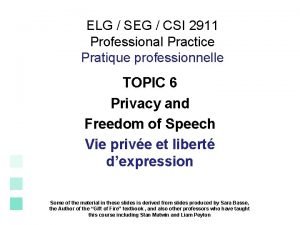CSI 2911 SEG 2911 ELG 2911 Professional Practice











- Slides: 11

CSI 2911 / SEG 2911 / ELG 2911 Professional Practice Pratique professionnelle TOPIC 5 Intellectual Property

Copyright / Droit d’auteur Applies to written and artistic work as well as software • “exclusive legal right to reproduce, publish and sell a work” • http: //publications. gc. ca/site/eng/ccl/about. Copyright. htm l • “le droit exclusif de reproduire, de publier et de vendre une œuvre” • http: //publications. gc. ca/site/fra/dacol/a. Propos. Droit. Aute ur. html EECS 2911 - Lethbridge 2

Details about copyrights Who owns the copyright • The author or her/his employer, performer, recording maker, broadcaster • Can be assigned (transferred or sold) How long does it last • Fifty years after the end of the year in which the author/creator dies • After that, works are in the public domain Copyright protects the expression of ideas, not the ideas themselves EECS 2911 - Lethbridge 3

Copyright is automatic Does not need to be registered • The Berne convention ensures your copyright holds around the world EECS 2911 - Lethbridge 4

Patents / Brevets Canadian definition • “a right, granted by government, to exclude others from making, using, or selling your invention in Canada”. • http: //www. cipo. ic. gc. ca/eic/site/cipointernetopic. nsf/eng/h_wr 00001. html • “le droit que vous donne le gouvernement d'empêcher d'autres personnes de fabriquer, d'employer ou de vendre votre invention au Canada. ” • http: //www. cipo. ic. gc. ca/eic/site/cipointernetopic. nsf/fra/h_wr 00001. html EECS 2911 - Lethbridge 5

Details about patents Designed to ensure that ideas are made public and so technology can advance • However in software, many argue that there are so many ideas in any program that patents hinder progress Priority for who get patent largely ‘first to file’ Must be applied for in every country where you want protection • Patent Cooperation Treaty allows patent priority date to be the same in multiple countries • Filing in the US is critical EECS 2911 - Lethbridge 6

Criteria for granting patents Must be novel, useful and non-obvious to be ‘granted’ • Examination can take several years before approval Non-obviousness • Obvious if an “unimaginative skilled technician, in light of his general knowledge and the literature and information on the subject available to him, would have been led directly and without difficulty to [the] invention. ” Novelty: No prior art that demonstrates someone has made the invention before • E. g. another patent in Canada or elsewhere EECS 2911 - Lethbridge 7

Details about patents Valid until 20 years after date of filing or until abandoned, whichever comes first • Made public 18 months after filing Somebody can sue you to invalidate your patent • E. g. if they believe your patent is obvious or not novel If you sue someone else for infringement, • You may win damages • Or the defendant might be found not to be violating your patent • Or your patent may be found to not be valid EECS 2911 - Lethbridge 8

Patenting is expensive Requires fees to file the patent and to ‘maintain’ it • Plus fees for ‘patent agents’ to help you through the process Patent examiners often raise objections, requiring changes before a patent is granted • There may be many iterations If you believe someone is infringing on your patent, you sue them • If you don’t do this, might as well not have the patent since ability to sue is the only way to get benefit out of a patent Ownership of patents can be assigned to others (sold) EECS 2911 - Lethbridge 9

Trade secret A secret you hold about some technological idea that is not protected by patent • Can be stolen • You can sue thief, but it is too late to prevent everybody else from using the idea EECS 2911 - Lethbridge 10

Top Hat Monocle question: Software Intellectual Property EECS 2911 - Lethbridge 11
